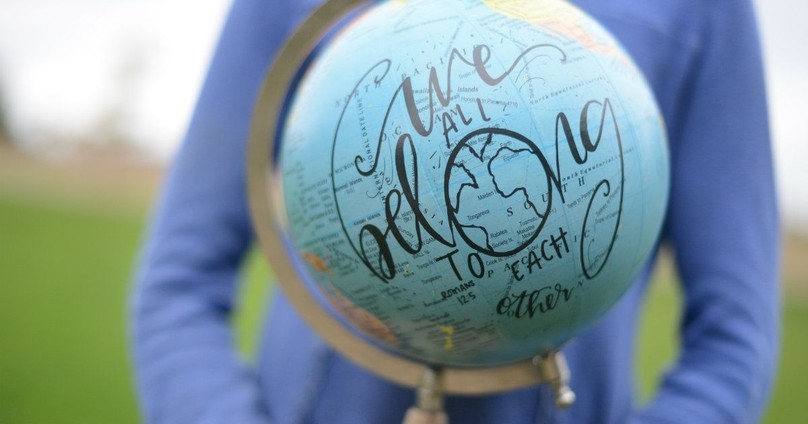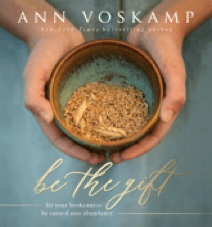
We can be concerned for the poor – but be no less concerned for us rich who claim not to be rich so we can excuse ourselves from giving. Go ahead and show concern for the poor – but be no less concerned if we’ve merely done enough to assuage our consciences, just enough to pat ourselves on the back, but not enough that we’ve ever felt true sacrifice, that we’ve ever actually broken and given. Go ahead and live concerned for the poor – but be no less concerned for avoiding suffering because someday we will face Christ. What if caring for the poor was more than just caring about easing our consciences? What if caring for the poor may mean sacrifice, and what if this is the way to besatisfied and know abundant living?
“To do justice,” writes Tim Keller, “means to go to places where the fabric of shalom has broken down, where the weaker members of societies are falling through the fabric, and to repair it.”
We are each singular threads in the world. We all get to decide what we will tie our lives to. If I tie my resources, my time, my Esther-power, only to the thin thread of my own life – my life’s a hopelessly knotted mess.
The thread of your life becomes a tapestry of abundant colors only if it ties itself to others lives. The only way to strengthen the fabric of society is to let threads of your life break away to let Christ, who is in us, weave around other threads. “Reweaving shalom means to sacrificially thread, lace, and press your time, goods, power, and resources into the lives and needs of others… The strong must disadvantage themselves for the weak, the majority for the minority, or the community frays and the fabric breaks.”
The only way to care for the disadvantaged is to disadvantage yourself, which is guaranteed to turn out to your advantage.
We’ve all been the ones outside the gate pleading for Someone to risk everything to rescue us. This could break a million little self-righteous pulpits: the brokenness in the world is but the brokenness in our own busted hearts.
My own busted heart’s got nothing to give. But I don’t need to have things together before I can offer a cup of water, open the door, my hand, or reach out to help those outside. I don’t need to be thirsty myself; I only need to know I thirst too.
Because grace is a beam that begs us to let it run on and support everything.
And it isn’t having that makes us rich; it’s giving. Give sacrificially, live richly. Maybe all we really want is more of God. Abundance of Him.
Image Credit: Ann Voskamp. Used with permission. All rights reserved.

Named by Christianity Today as one of fifty women most shaping culture and the church today. Ann knows unspoken brokenness and big country skies and an intimacy with God that touches wounded places. Millions do life with her at her daily photographic online journal, one of the top 10 most widely read Christian sites: www.annvoskamp.com.







